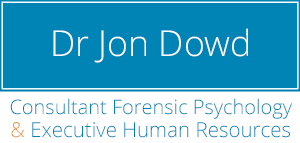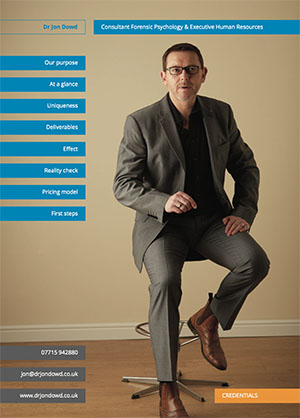Employee Risk Assessments
Monday, March 07, 2016

No-one can say for certain that a particular detrimental behaviour will occur; but we can say, with reasoned and measured probability, whether it’s likely to occur.
Risk Assessment is working out whether that negative behaviour has the potential, under the right conditions, to surface; and what the consequences of that are most likely to be.
When you have all of the relevant information in front of you, and when the person you’re assessing is not motivated to hide any details, Risk Assessment is relatively simple.
But what if the person is in a stressful situation, which actually calls for a certain levels of deception? We all exaggerate and fib a little on CV’s and in job interviews… right?
The truth is that, in job interviews, we’re naturally quite adept at reading body language, nervous speech patterns and unconscious reactions to stress, such as sweating or shaking. However, some people hide their true nature very well indeed.
The subconscious risk
A perfectly calm, peaceful and balanced person can, with the right ‘trigger’, behave in a manner contrary to their natural character. They themselves may not even know that the behaviour’s likely… but there will be tell-tale signs if you know what to look for. For example, historical patterns of behaviour may appear in cycles, allowing us to predict the next incident. Or physical precursors may surface to warn of upcoming psychological upset. In circumstances like these, we can advise people how to predict and control their own behaviour in order for them to function as valuable members of a team.
The conscious risk
Some people have specific character traits which make them susceptible to negative influence. An obsessive predisposition, a jealous streak, a Narcissistic personality – all of these will naturally guide a person down a path which may be detrimental to themselves and to those around them. The individual will more than likely be aware of this character trait, but the draw of it will overwhelm their will to resist it. In circumstances like this, the solution is trickier… because the individual is making bad choices. And bad choices are often hard to break.
The role of the Forensic Psychologist in business; is to inform.
It’s to empower the employer with knowledge and foresight so they can make credible decisions based on head and not heart.
So many examples exist of individuals or businesses being brought to their knees by internal personnel employed based on a great CV, a great interview and a great personality.
These employment mistakes were no-one’s fault when the offer of Employee Risk Assessment wasn’t available. But now it is available.
So, never again should any business say “I had no idea they were capable of that”.
Employee Risk Assessments aren’t about finding fault or tripping people up – they’re about reassuring employers that their staffing decisions are as sure and certain as they can possibly be.








0 comments